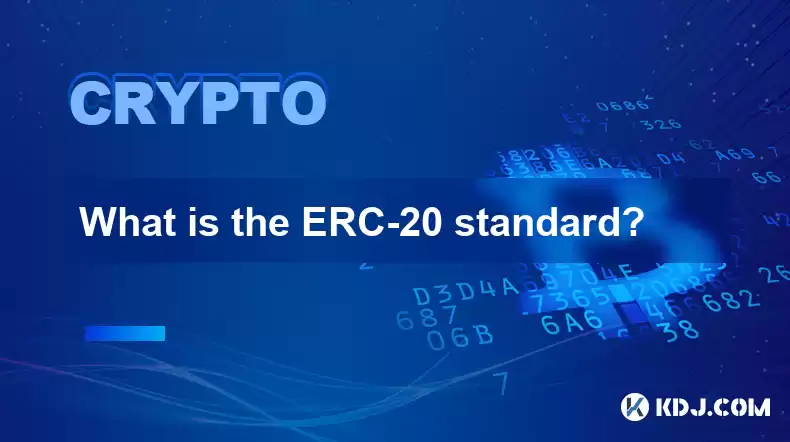-
 Bitcoin
Bitcoin $120300
1.41% -
 Ethereum
Ethereum $4296
2.75% -
 XRP
XRP $3.220
1.46% -
 Tether USDt
Tether USDt $0.9997
-0.04% -
 BNB
BNB $801.6
0.14% -
 Solana
Solana $179.9
0.22% -
 USDC
USDC $0.9998
-0.01% -
 Dogecoin
Dogecoin $0.2302
-0.24% -
 TRON
TRON $0.3405
-0.39% -
 Cardano
Cardano $0.7965
0.53% -
 Hyperliquid
Hyperliquid $44.80
2.57% -
 Chainlink
Chainlink $21.95
2.94% -
 Stellar
Stellar $0.4438
1.68% -
 Sui
Sui $3.767
-1.42% -
 Bitcoin Cash
Bitcoin Cash $584.4
3.24% -
 Hedera
Hedera $0.2554
-0.59% -
 Ethena USDe
Ethena USDe $1.001
-0.02% -
 Avalanche
Avalanche $23.57
0.00% -
 Litecoin
Litecoin $126.6
4.64% -
 Toncoin
Toncoin $3.339
0.94% -
 UNUS SED LEO
UNUS SED LEO $9.001
-0.49% -
 Shiba Inu
Shiba Inu $0.00001320
-0.92% -
 Uniswap
Uniswap $10.84
3.36% -
 Polkadot
Polkadot $3.945
-1.39% -
 Cronos
Cronos $0.1663
4.77% -
 Ethena
Ethena $0.8136
8.48% -
 Dai
Dai $0.0000
0.00% -
 Bitget Token
Bitget Token $4.391
-0.51% -
 Monero
Monero $268.0
0.80% -
 Pepe
Pepe $0.00001169
-1.57%
What is the ERC-20 standard?
The ERC-20 standard is a crucial Ethereum blueprint for creating fungible tokens, ensuring interoperability across wallets and applications via standardized functions like transfers and balance checks.
Mar 12, 2025 at 06:30 pm

Key Points:
- The ERC-20 standard is a technical specification for creating tokens on the Ethereum blockchain.
- It defines a common set of rules and functions that all ERC-20 tokens must adhere to.
- This standardization facilitates interoperability and ease of use for developers and users.
- Understanding ERC-20 is crucial for anyone involved in Ethereum-based token projects or investments.
- Key functions include transferring tokens, checking balances, and approving spending.
What is the ERC-20 Standard?
The ERC-20 standard is a crucial element within the Ethereum ecosystem. It's not a cryptocurrency itself, but rather a technical standard that dictates how fungible tokens behave on the Ethereum blockchain. Think of it as a blueprint for creating tokens; developers use this blueprint to ensure their tokens can interact seamlessly with various Ethereum-based applications and wallets. This standardization is key to the success and widespread adoption of Ethereum tokens.
Why is the ERC-20 Standard Important?
Before the ERC-20 standard, each token created on Ethereum had its unique set of rules and functionalities. This led to significant compatibility issues. ERC-20 solved this by establishing a common set of rules, making tokens interoperable. This interoperability allows tokens to be easily traded on exchanges, integrated into decentralized applications (dApps), and used across different platforms. It's a foundation for a more unified and efficient token ecosystem.
What are the Key Functions of an ERC-20 Token?
ERC-20 tokens adhere to a set of core functions that define their behavior. These functions are crucial for their interaction with various applications and wallets. Let's explore these key functions:
totalSupply(): This function returns the total number of tokens in circulation.balanceOf(address): This function returns the balance of a specific address.transfer(address _to, uint256 _value): This function transfers tokens from the sender to a specified recipient.transferFrom(address _from, address _to, uint256 _value): This function allows a third party to transfer tokens on behalf of another address. This is often used in conjunction with theapprove()function.approve(address _spender, uint256 _value): This function allows an address to spend a certain amount of tokens from the owner's balance. This is a crucial function for decentralized exchanges and other applications.
How are ERC-20 Tokens Created?
Creating an ERC-20 token involves several steps, primarily focusing on smart contract development and deployment. The process typically involves:
- Writing the Smart Contract: Developers write the smart contract code using Solidity, Ethereum's primary programming language. This code implements the ERC-20 functions and defines the token's specific attributes (e.g., total supply, name, symbol).
- Compiling the Smart Contract: The Solidity code is compiled into bytecode, which is the machine-readable format for the Ethereum Virtual Machine (EVM).
- Deploying the Smart Contract: The compiled bytecode is deployed to the Ethereum blockchain using a transaction. This creates the token on the blockchain.
- Testing the Smart Contract: Thorough testing is crucial to ensure the smart contract functions correctly and securely before widespread use.
What are the Advantages of Using the ERC-20 Standard?
The ERC-20 standard offers several advantages for both developers and users:
- Interoperability: ERC-20 tokens are compatible with a wide range of wallets, exchanges, and dApps.
- Ease of Development: The standard provides a clear framework, simplifying the development process.
- Standardization: Consistent functionality across tokens enhances user experience and reduces confusion.
- Liquidity: The wide adoption of ERC-20 fosters greater liquidity for tokens.
What are the Differences Between ERC-20 and Other Token Standards?
While ERC-20 is the most popular token standard on Ethereum, others exist, each designed for different purposes. For example, ERC-721 is used for non-fungible tokens (NFTs), representing unique digital assets, unlike the fungible nature of ERC-20 tokens. Other standards address specific functionalities or limitations of the ERC-20 standard.
Security Considerations for ERC-20 Tokens:
Security is paramount when dealing with smart contracts and tokens. Vulnerabilities in the smart contract code can lead to significant financial losses. Therefore:
- Auditing: Professional audits by reputable security firms are crucial to identify and mitigate potential vulnerabilities.
- Best Practices: Developers should adhere to secure coding practices to minimize risks.
- Careful Deployment: Deploying the smart contract to a test network before mainnet deployment is recommended.
Common Questions and Answers:
Q: Are all tokens on Ethereum ERC-20 tokens?
A: No, while many tokens on Ethereum are ERC-20 compliant, others utilize different standards like ERC-721 (NFTs) or other custom standards designed for specific purposes.
Q: Can I create my own ERC-20 token?
A: Yes, but it requires programming skills in Solidity and a thorough understanding of smart contract development and security best practices. Consider professional assistance if you lack the necessary expertise.
Q: Where can I find information on ERC-20 tokens?
A: The Ethereum documentation, Etherscan (for exploring existing ERC-20 contracts), and various online resources provide comprehensive information about the ERC-20 standard and related topics.
Q: What are the gas fees associated with ERC-20 transactions?
A: Gas fees are transaction fees on the Ethereum network. The cost of transferring ERC-20 tokens depends on network congestion and the complexity of the transaction.
Q: Is it safe to invest in ERC-20 tokens?
A: Investing in any cryptocurrency carries risk. Thoroughly research any token before investing, paying attention to its project, team, and potential risks. Never invest more than you can afford to lose.
Disclaimer:info@kdj.com
The information provided is not trading advice. kdj.com does not assume any responsibility for any investments made based on the information provided in this article. Cryptocurrencies are highly volatile and it is highly recommended that you invest with caution after thorough research!
If you believe that the content used on this website infringes your copyright, please contact us immediately (info@kdj.com) and we will delete it promptly.
- DYDX Price Stays Afloat: Navigating Neutral Momentum with Technical Indicators
- 2025-08-11 20:50:12
- Superman Takes Flight: A Deep Dive into the Comic Program and Coin Medals
- 2025-08-11 20:30:12
- JasmyCoin's Bullish Momentum: Riding the Daily Gain Wave
- 2025-08-11 21:10:12
- Shiba Inu's Comeback Trail and the Meme Coin Mania: Can $SHIB Deliver a 12,000x Return?
- 2025-08-11 18:30:11
- Proof of Trust, Transparency, and User Safety: Keeping Crypto Real
- 2025-08-11 18:50:12
- Pudgy Penguins, Bitcoin Penguins, and the $22M Meme Coin Mania: A New York Perspective
- 2025-08-11 17:10:11
Related knowledge

How to purchase Aragon (ANT)?
Aug 09,2025 at 11:56pm
Understanding Aragon (ANT) and Its PurposeAragon (ANT) is a decentralized governance token that powers the Aragon Network, a platform built on the Eth...

Where to trade Band Protocol (BAND)?
Aug 10,2025 at 11:36pm
Understanding the Role of Private Keys in Cryptocurrency WalletsIn the world of cryptocurrency, a private key is one of the most critical components o...

What is the most secure way to buy Ocean Protocol (OCEAN)?
Aug 10,2025 at 01:01pm
Understanding Ocean Protocol (OCEAN) and Its EcosystemOcean Protocol (OCEAN) is a decentralized data exchange platform built on blockchain technology,...

Where can I buy UMA (UMA)?
Aug 07,2025 at 06:42pm
Understanding UMA and Its Role in Decentralized FinanceUMA (Universal Market Access) is an Ethereum-based decentralized finance (DeFi) protocol design...

How to buy Storj (STORJ) tokens?
Aug 09,2025 at 07:28am
Understanding Storj (STORJ) and Its Role in Decentralized StorageStorj is a decentralized cloud storage platform that leverages blockchain technology ...

Where to find the best price for Audius (AUDIO)?
Aug 11,2025 at 04:01pm
Understanding the Basics of Ethereum StakingEthereum staking refers to the process of locking up ETH tokens to support the security and operations of ...

How to purchase Aragon (ANT)?
Aug 09,2025 at 11:56pm
Understanding Aragon (ANT) and Its PurposeAragon (ANT) is a decentralized governance token that powers the Aragon Network, a platform built on the Eth...

Where to trade Band Protocol (BAND)?
Aug 10,2025 at 11:36pm
Understanding the Role of Private Keys in Cryptocurrency WalletsIn the world of cryptocurrency, a private key is one of the most critical components o...

What is the most secure way to buy Ocean Protocol (OCEAN)?
Aug 10,2025 at 01:01pm
Understanding Ocean Protocol (OCEAN) and Its EcosystemOcean Protocol (OCEAN) is a decentralized data exchange platform built on blockchain technology,...

Where can I buy UMA (UMA)?
Aug 07,2025 at 06:42pm
Understanding UMA and Its Role in Decentralized FinanceUMA (Universal Market Access) is an Ethereum-based decentralized finance (DeFi) protocol design...

How to buy Storj (STORJ) tokens?
Aug 09,2025 at 07:28am
Understanding Storj (STORJ) and Its Role in Decentralized StorageStorj is a decentralized cloud storage platform that leverages blockchain technology ...

Where to find the best price for Audius (AUDIO)?
Aug 11,2025 at 04:01pm
Understanding the Basics of Ethereum StakingEthereum staking refers to the process of locking up ETH tokens to support the security and operations of ...
See all articles

























































































